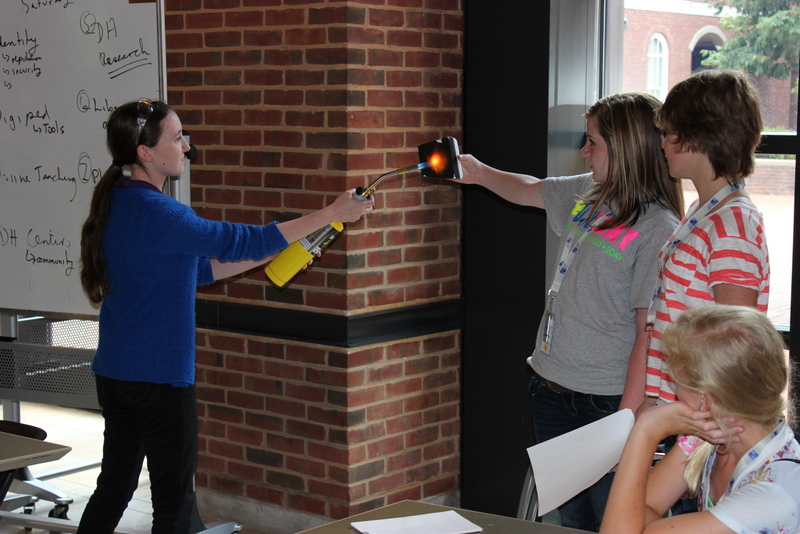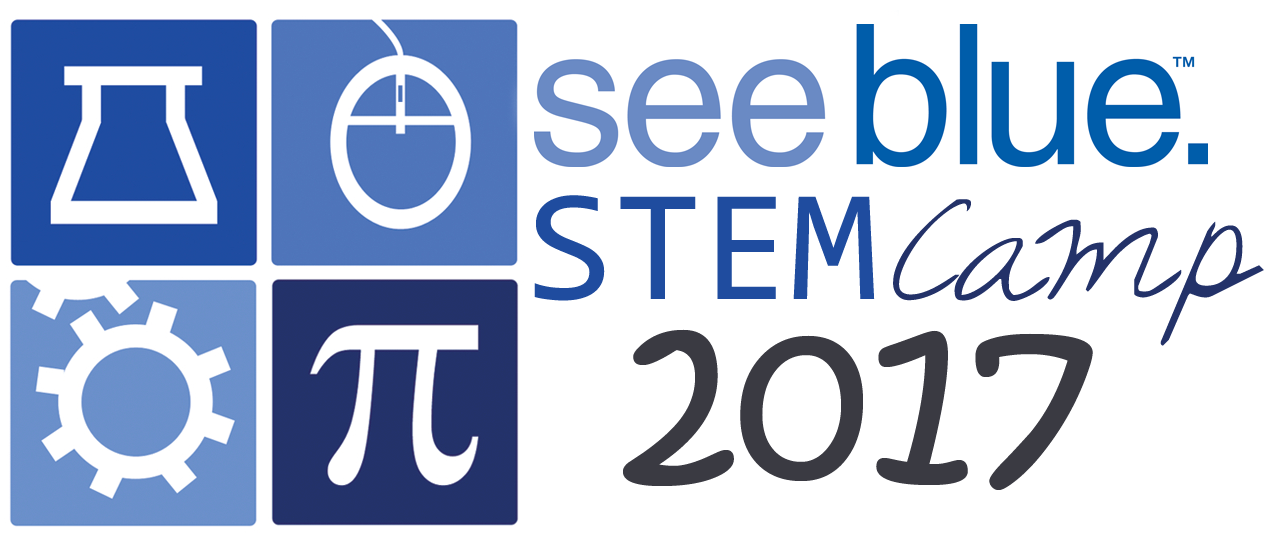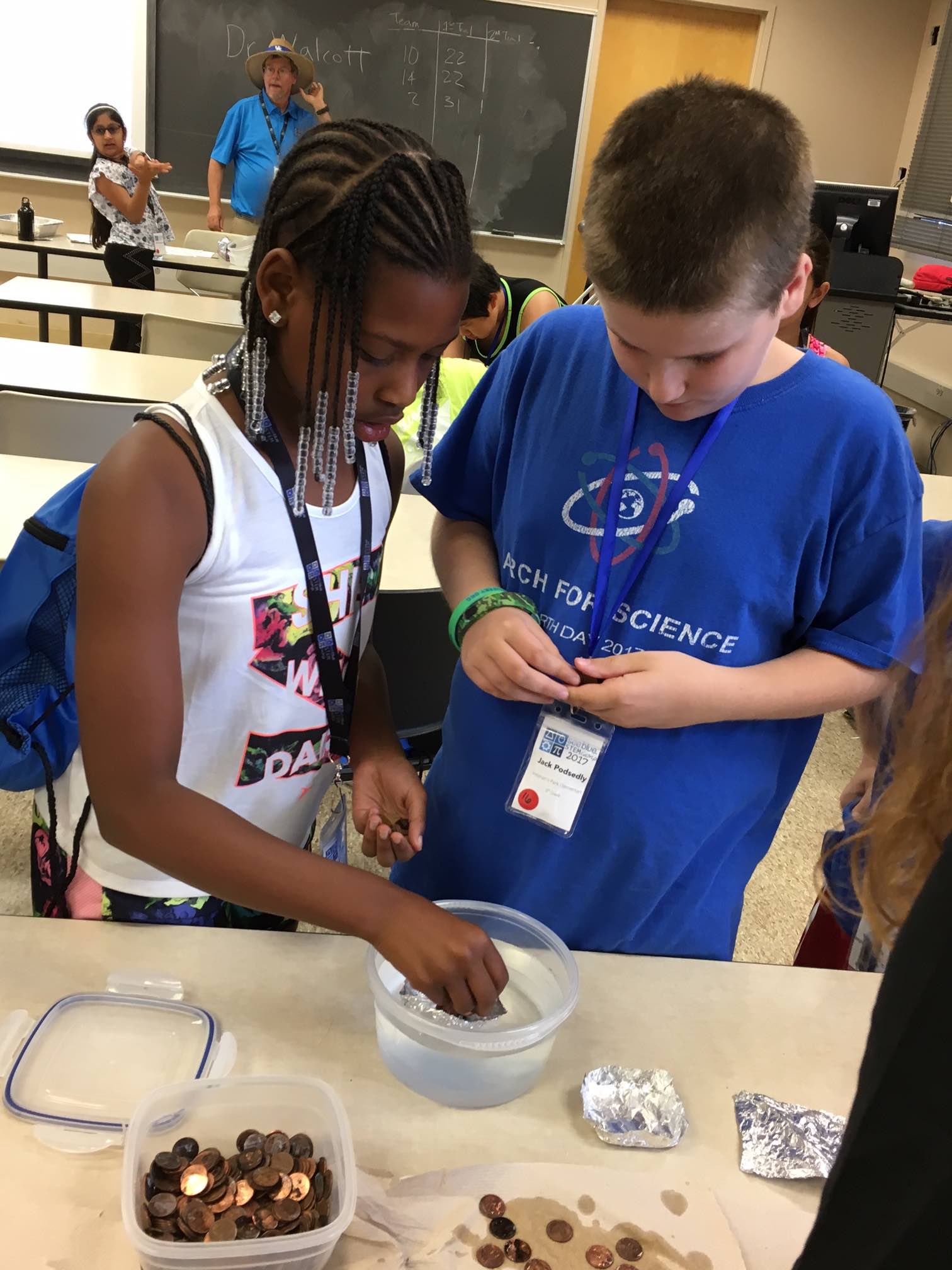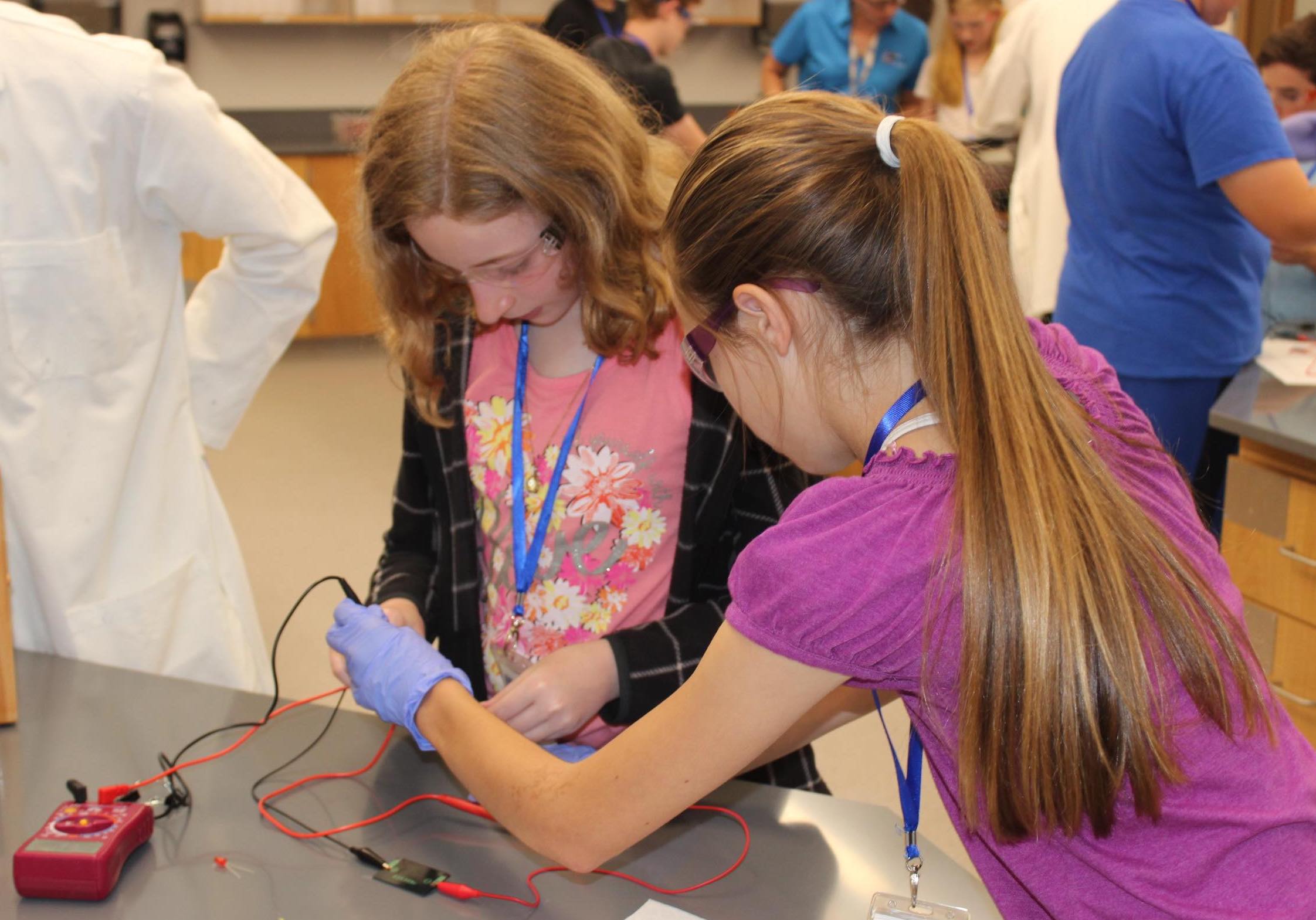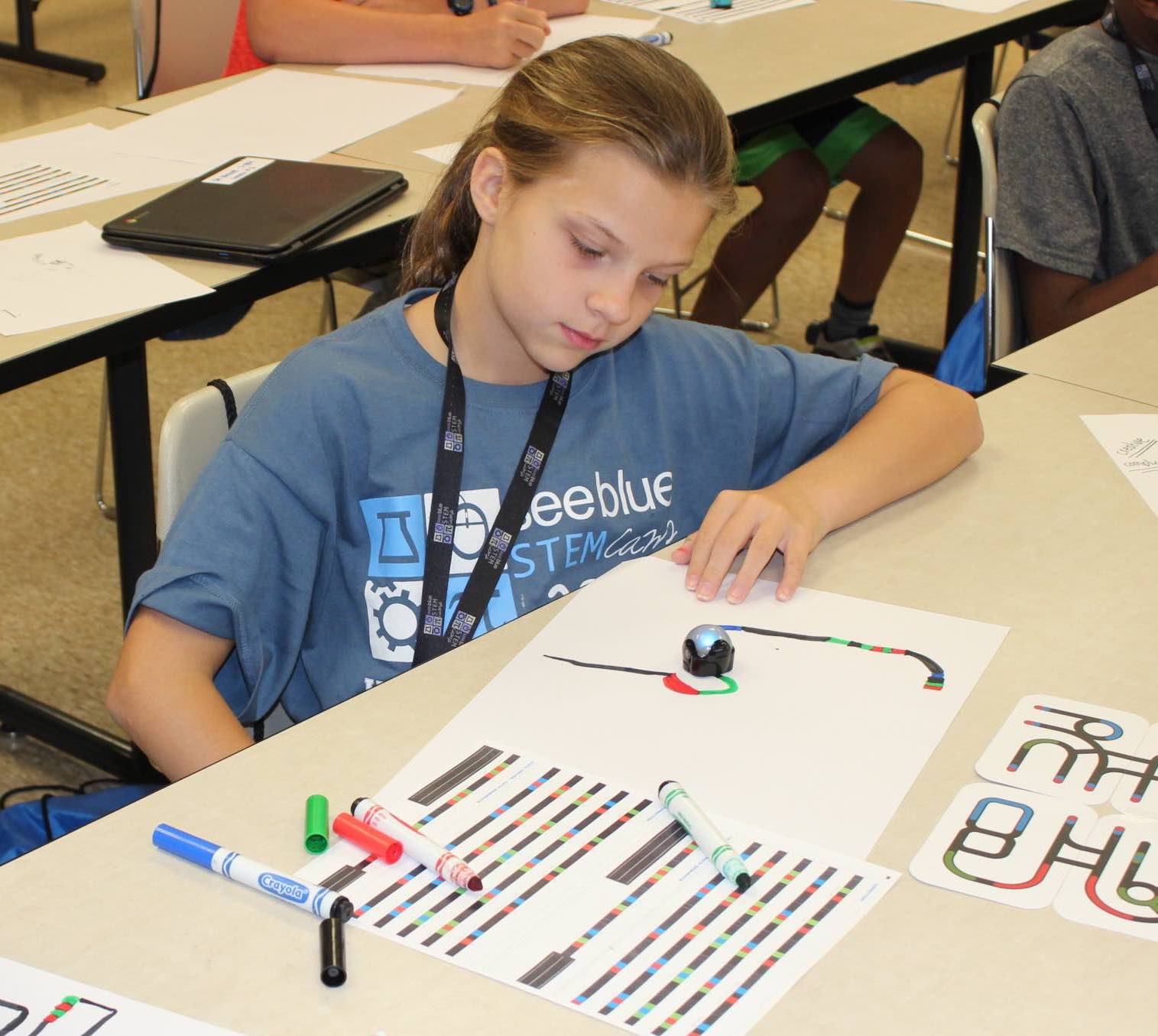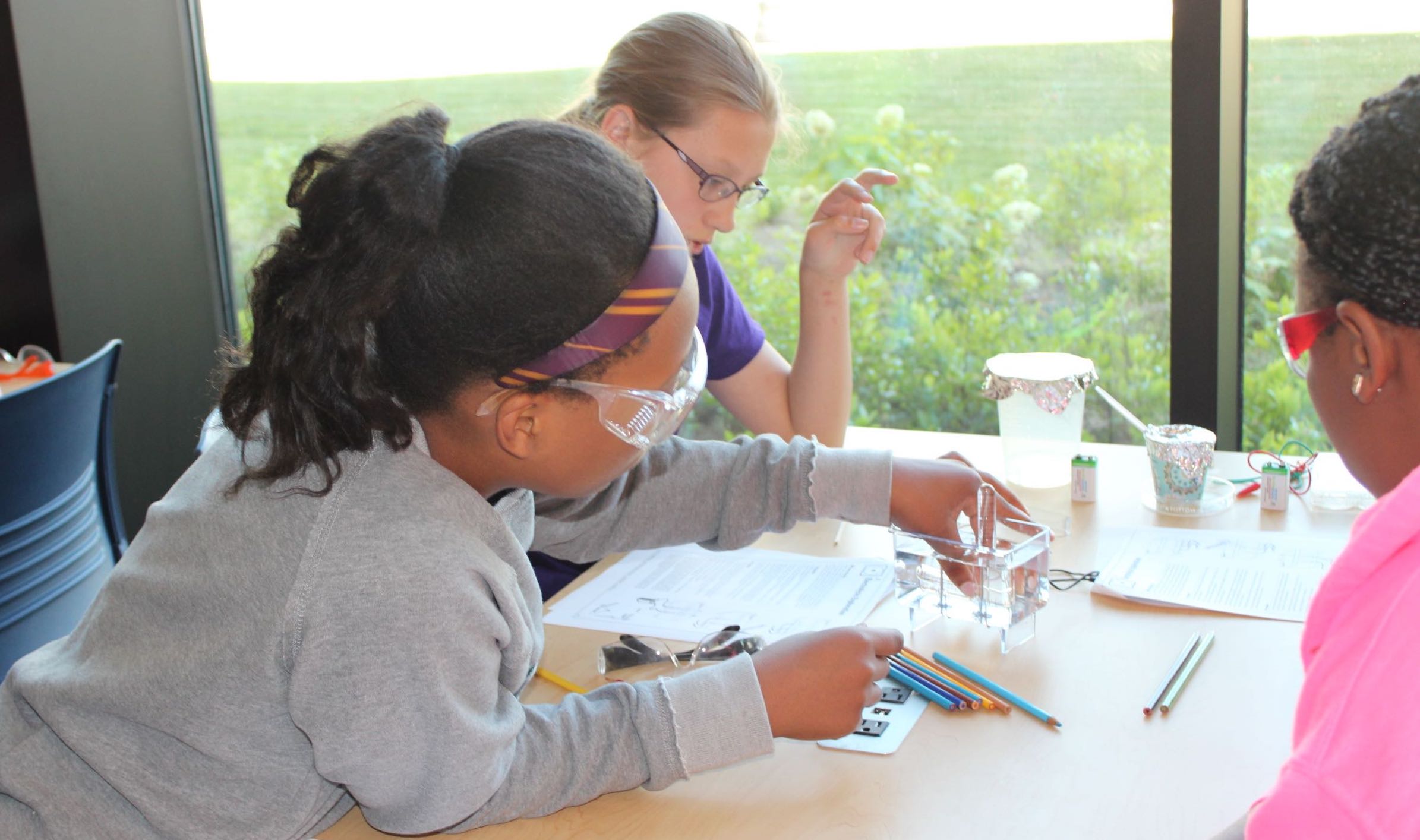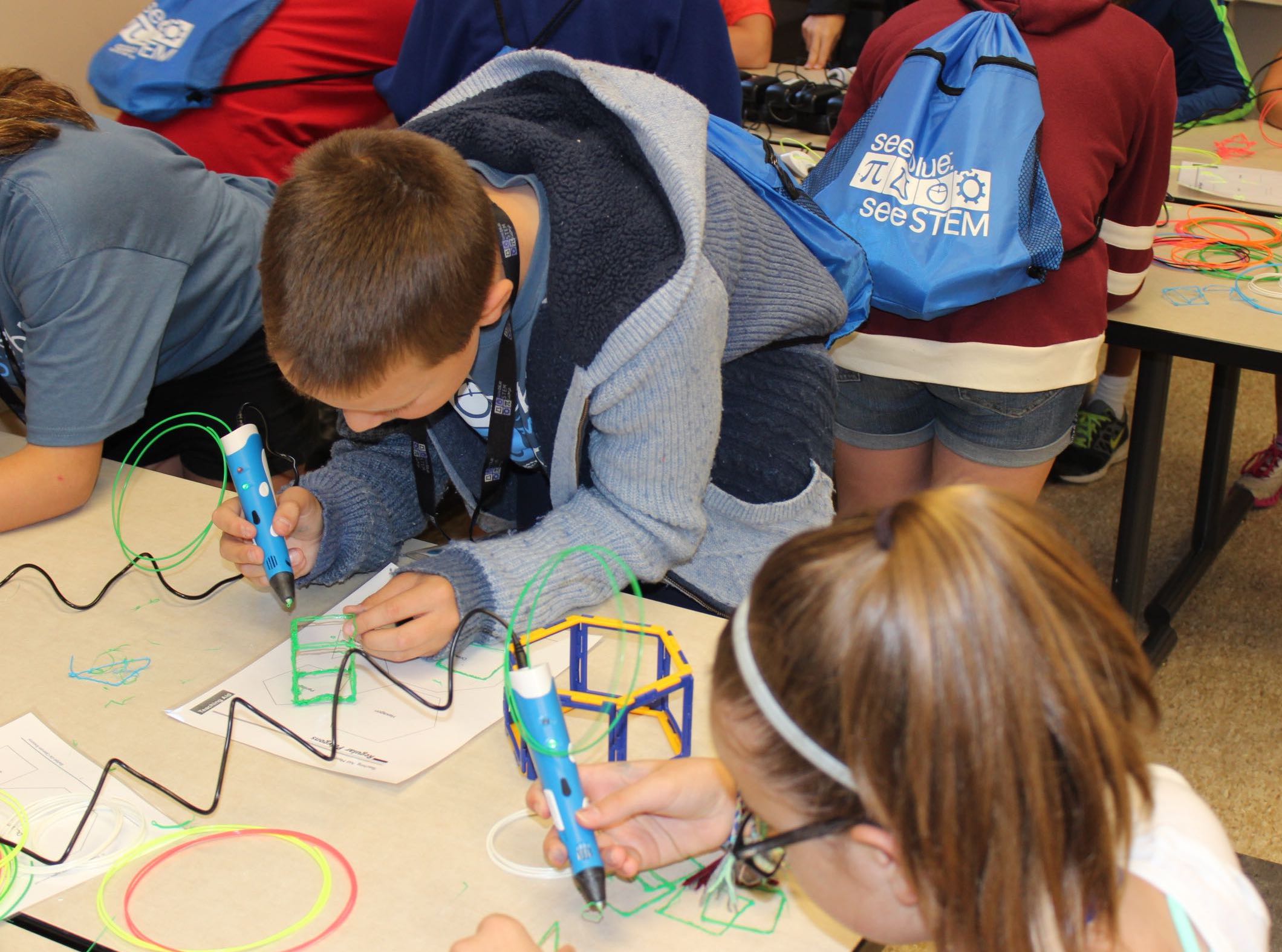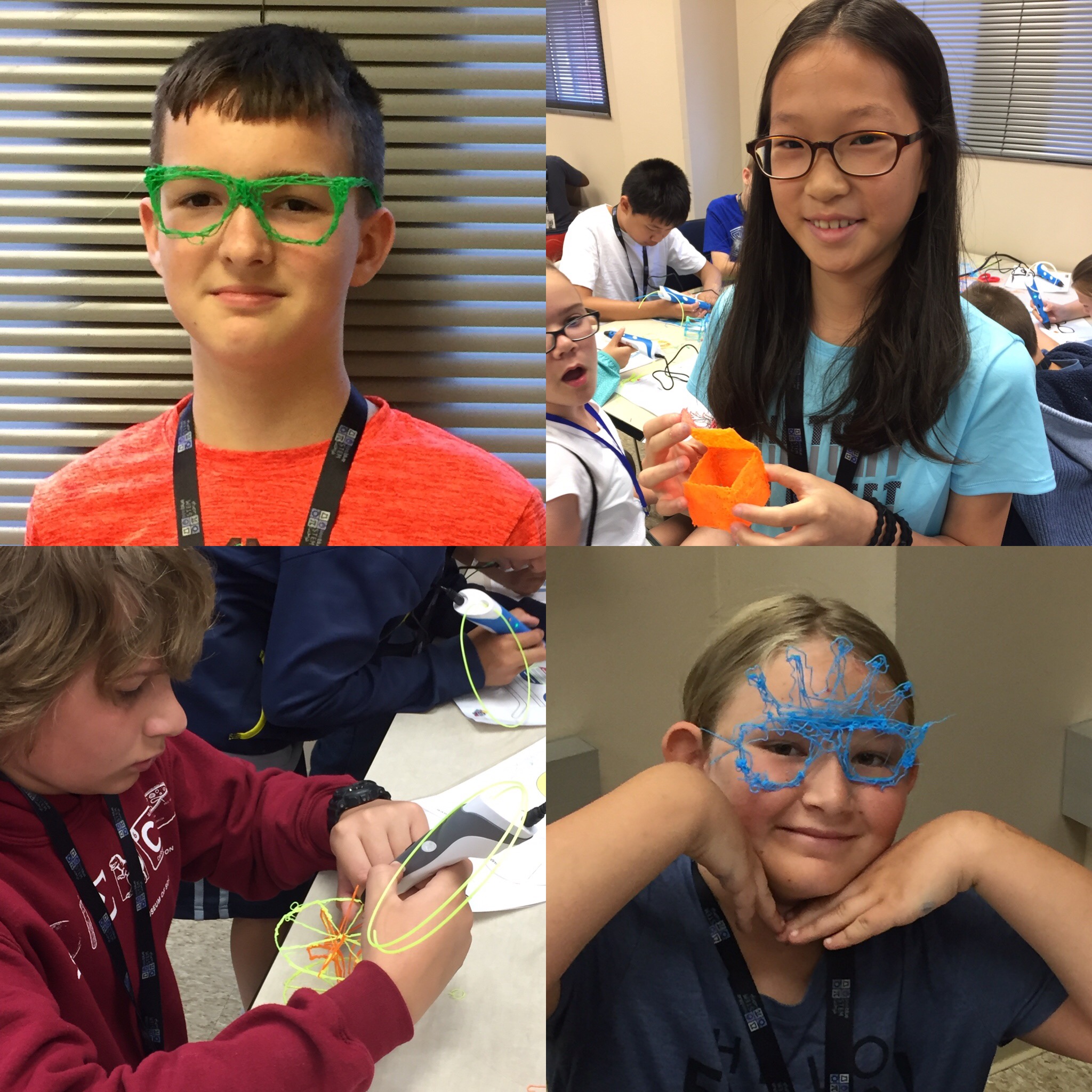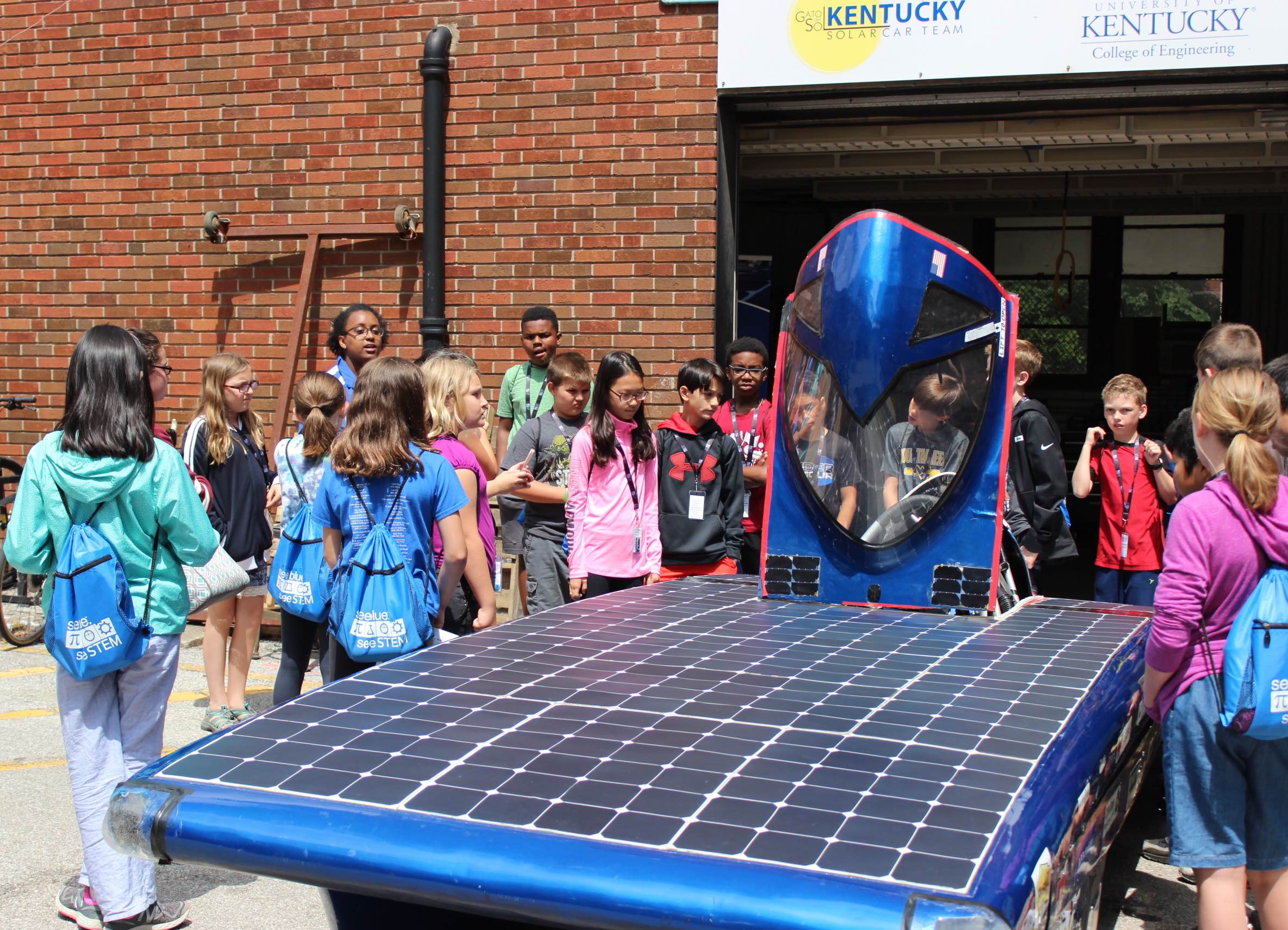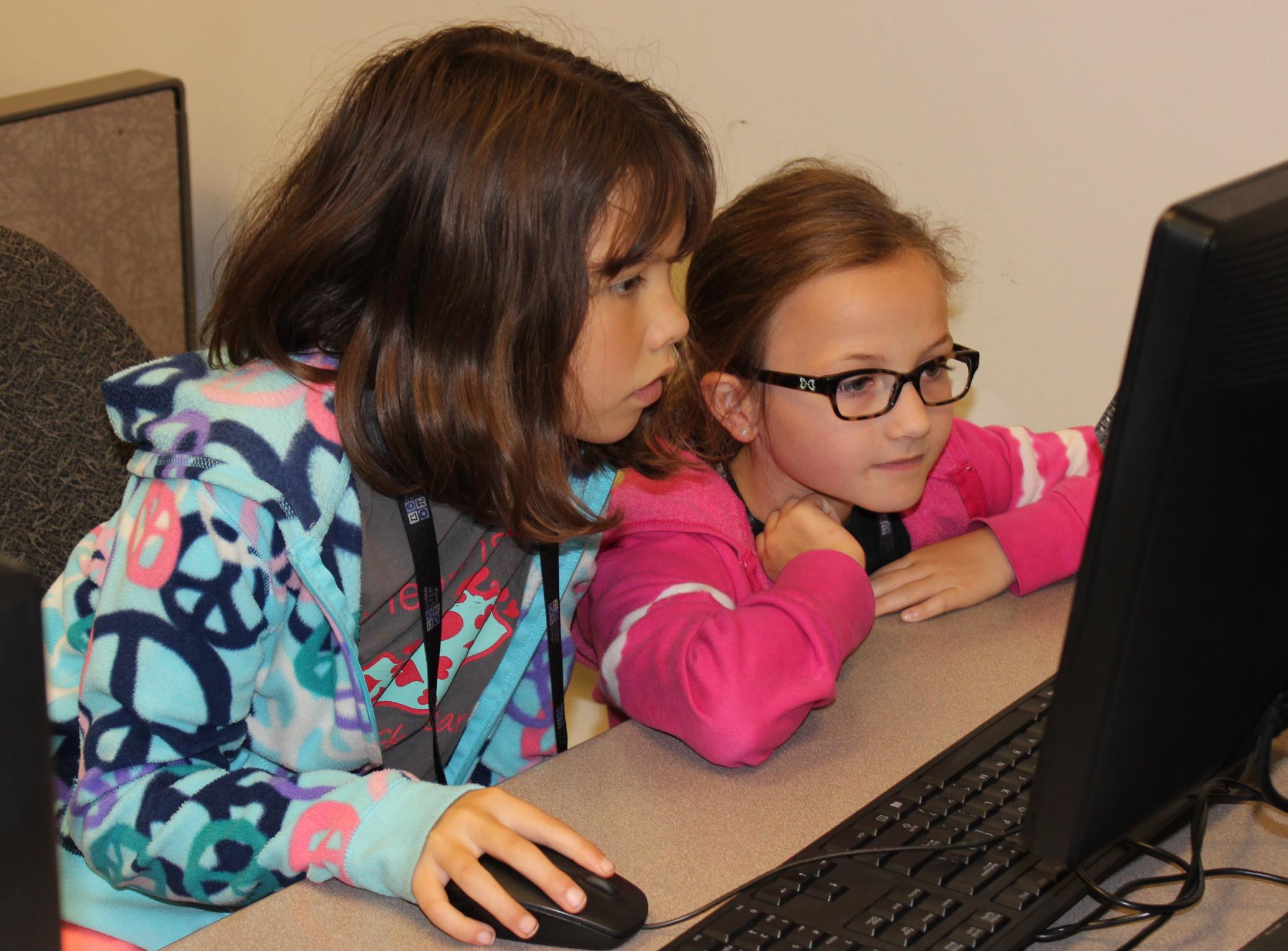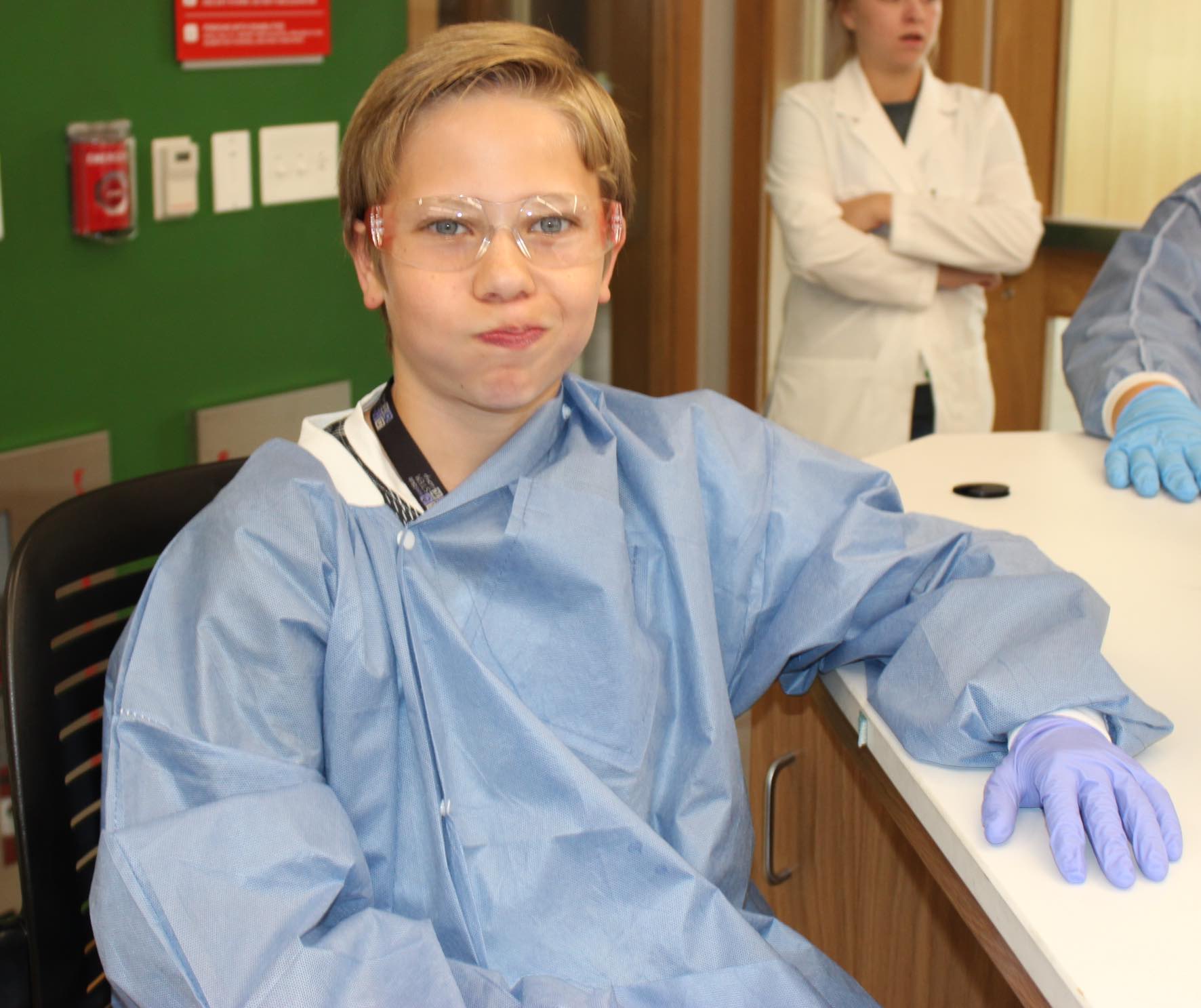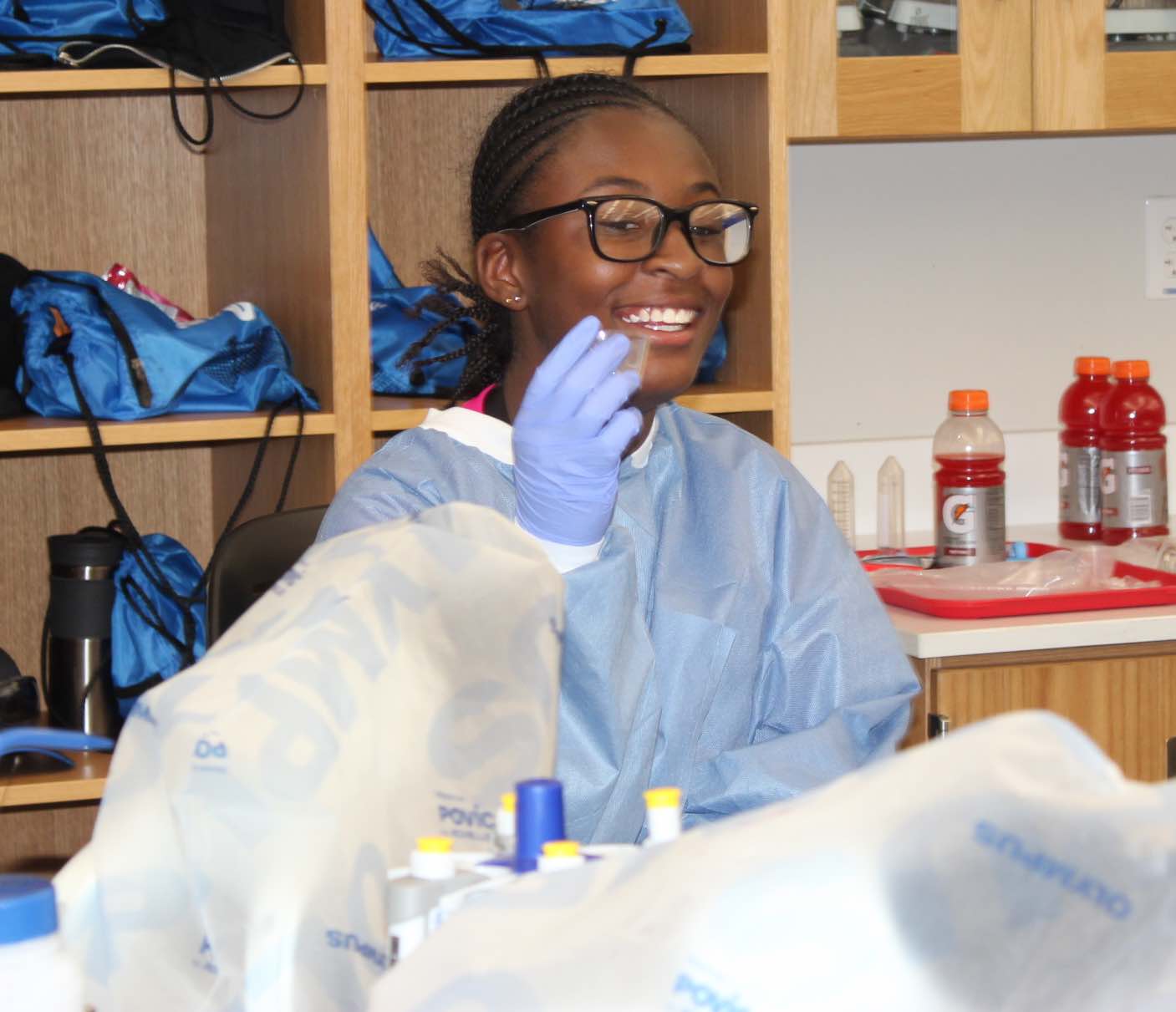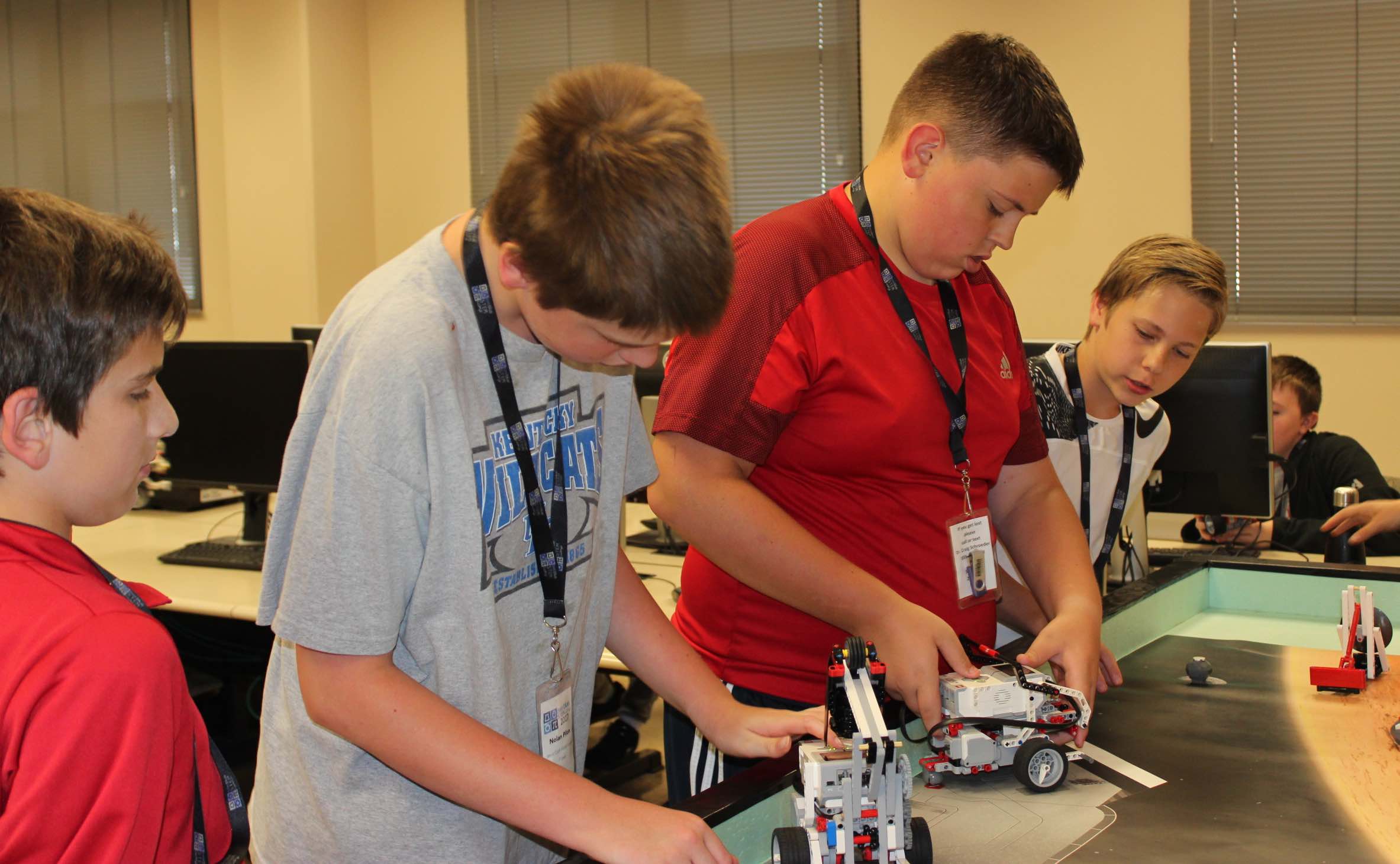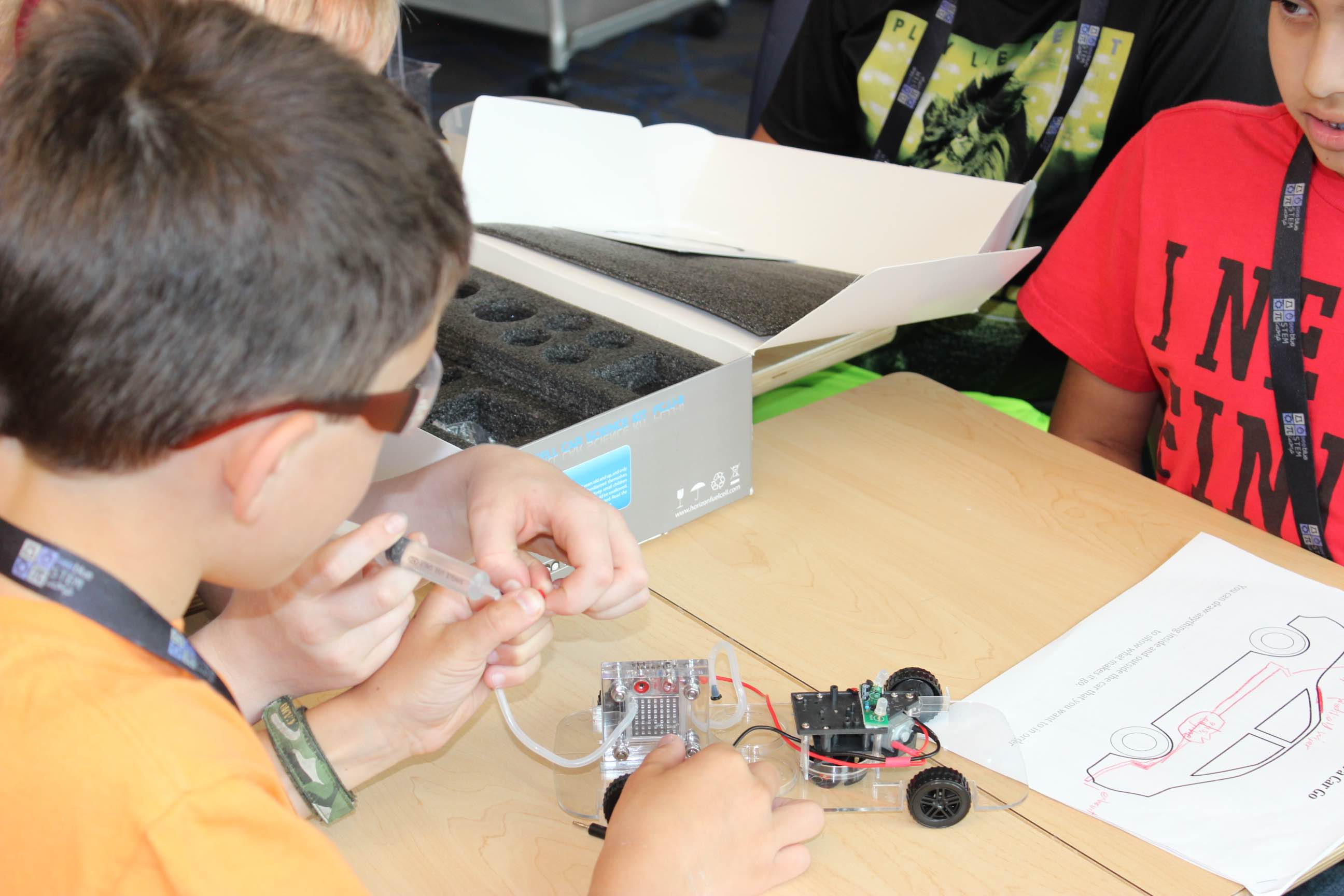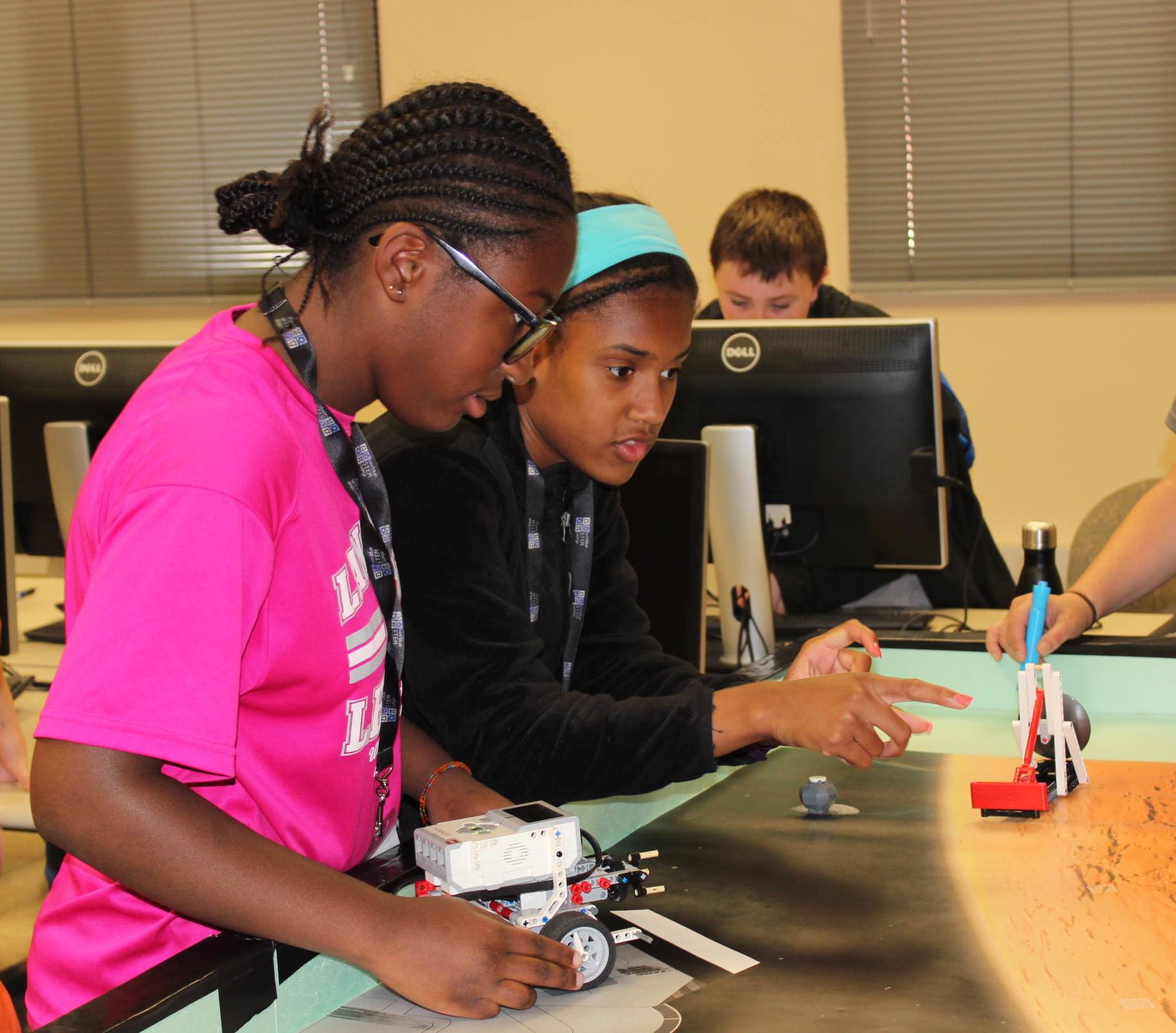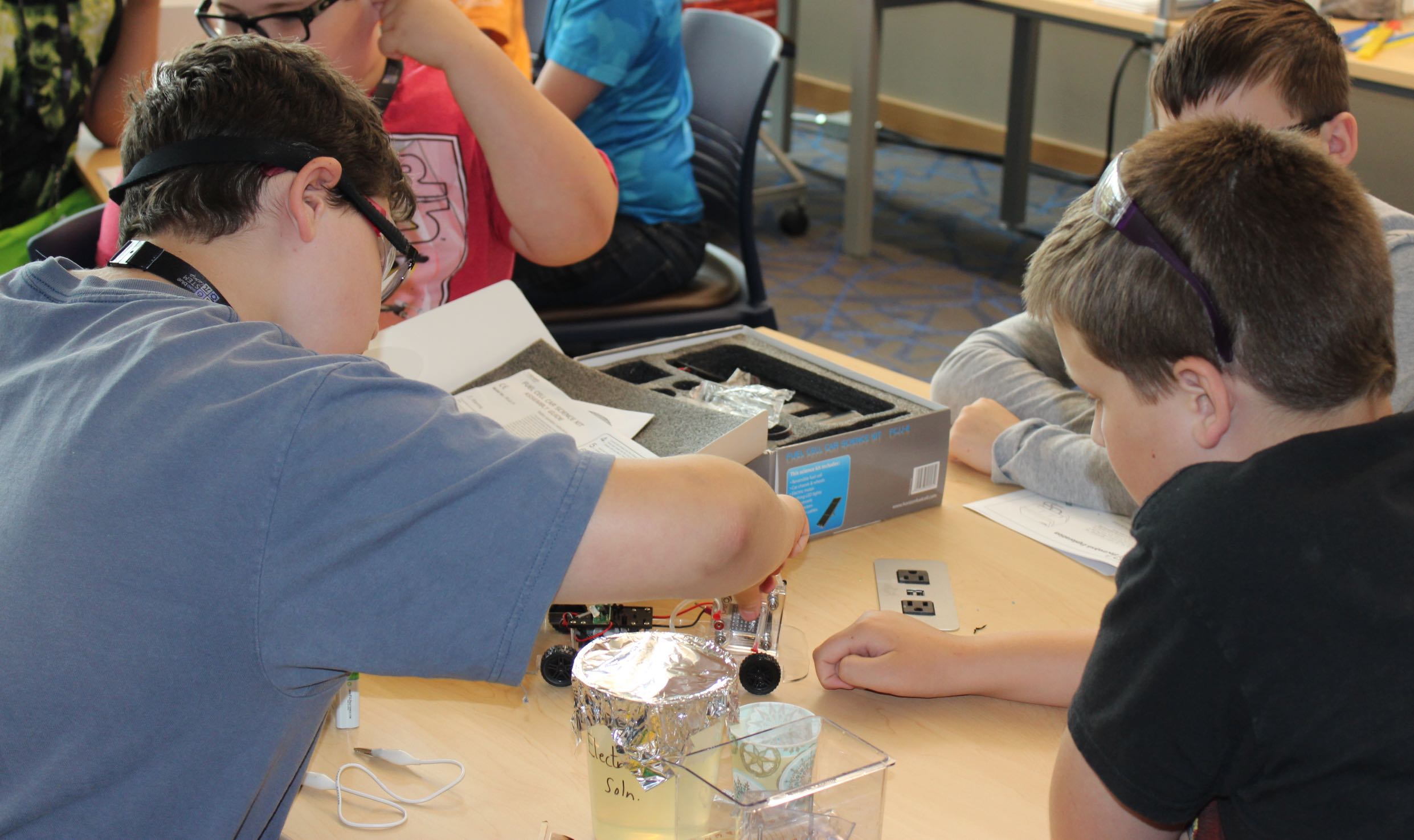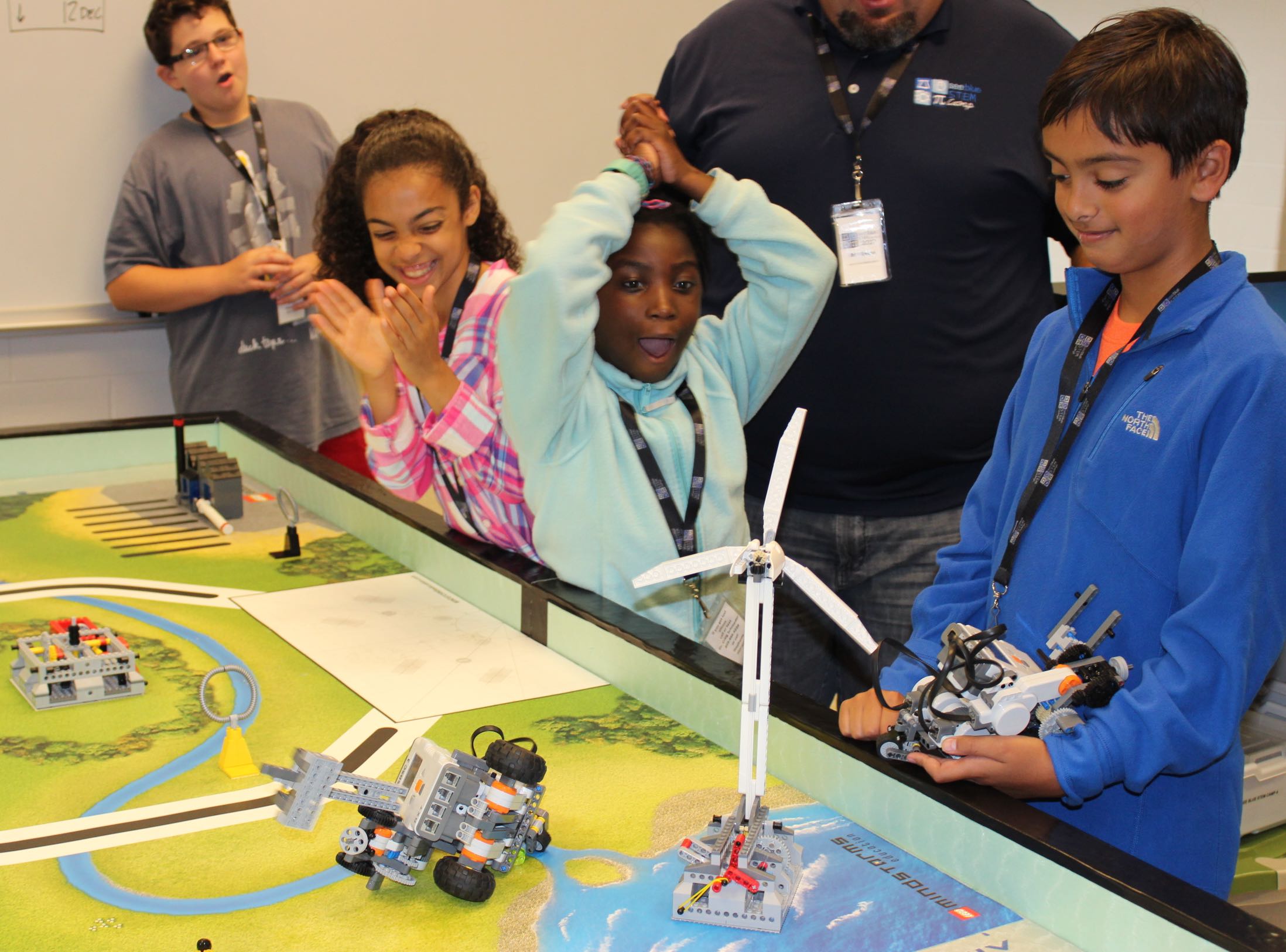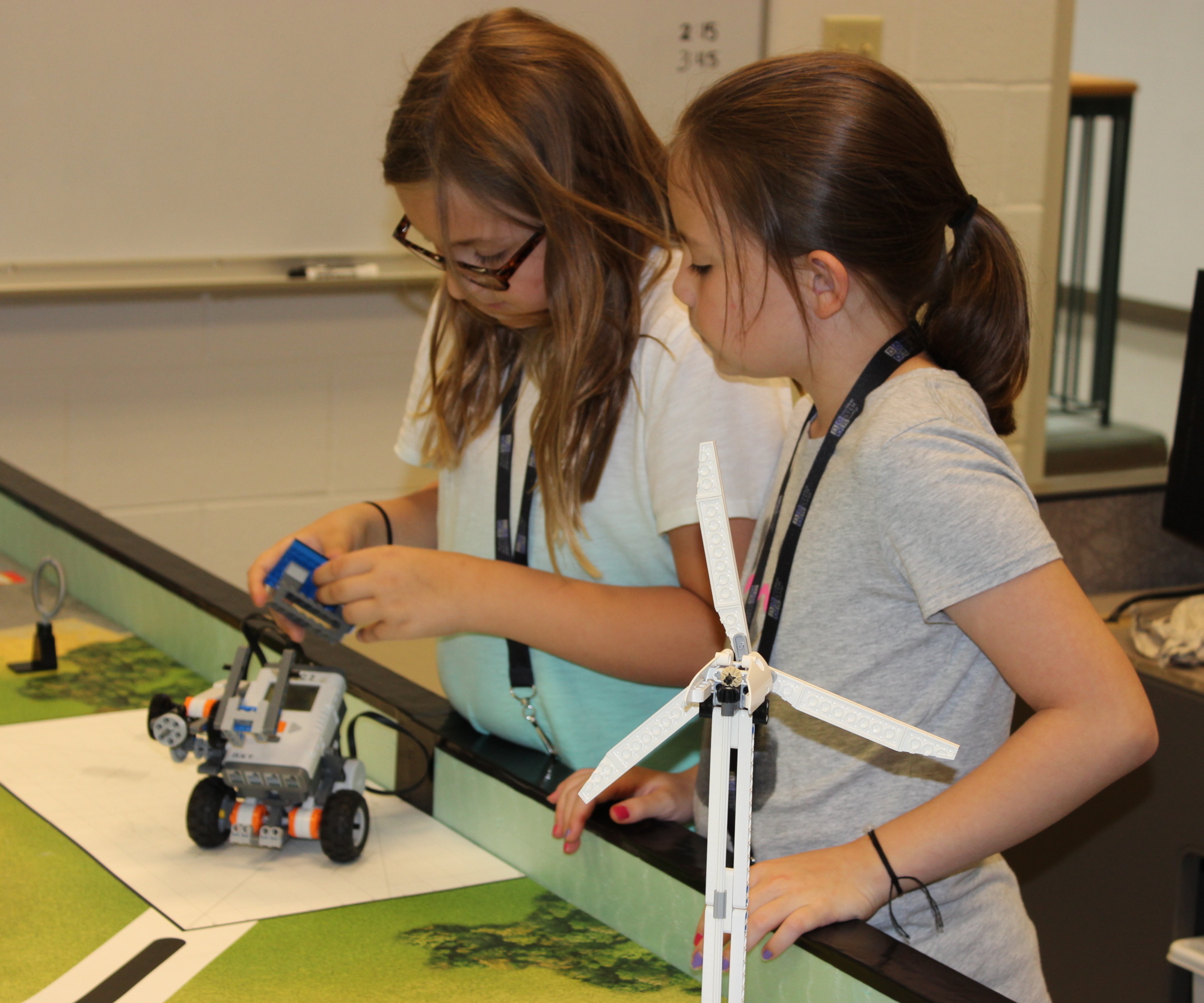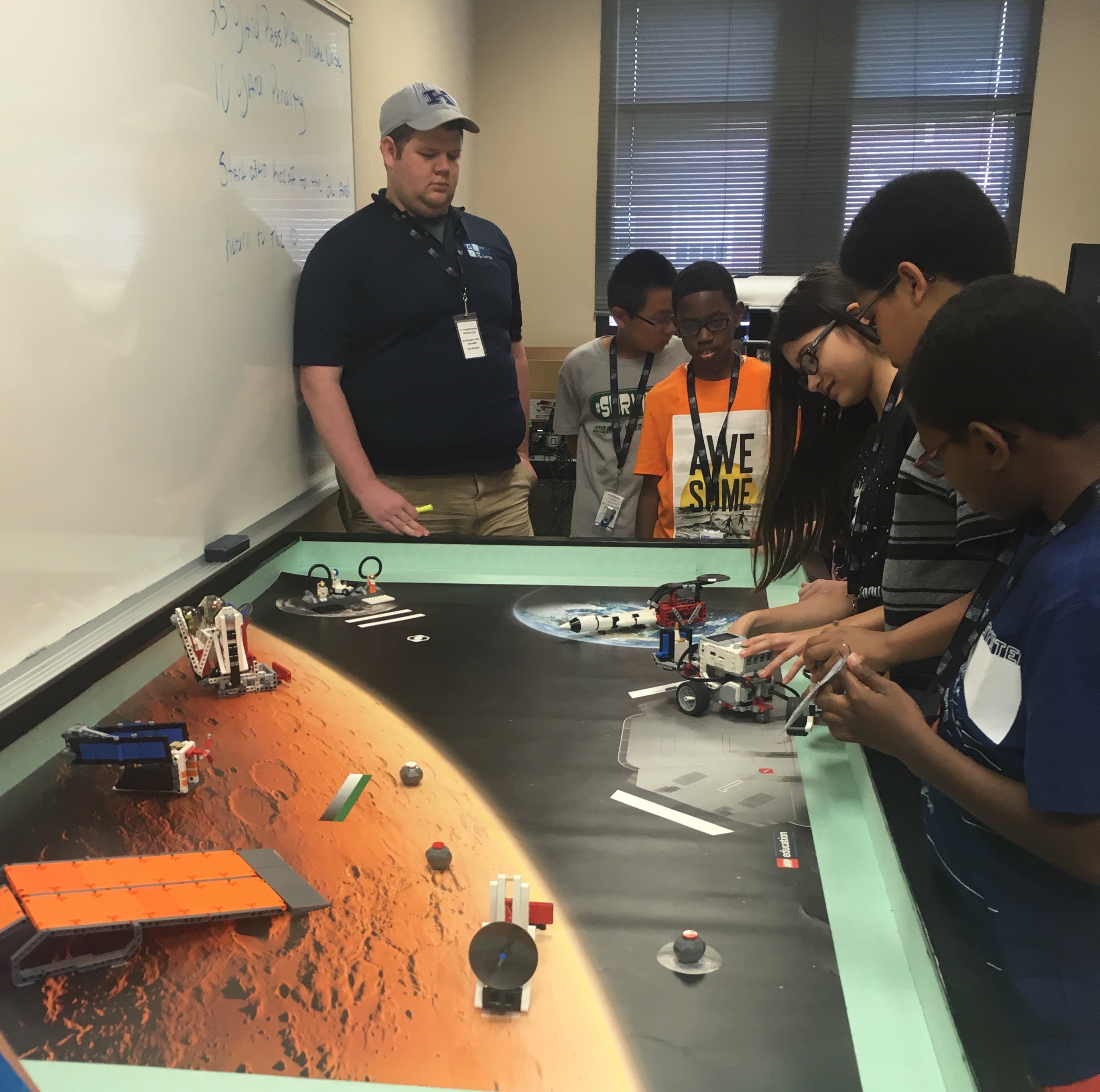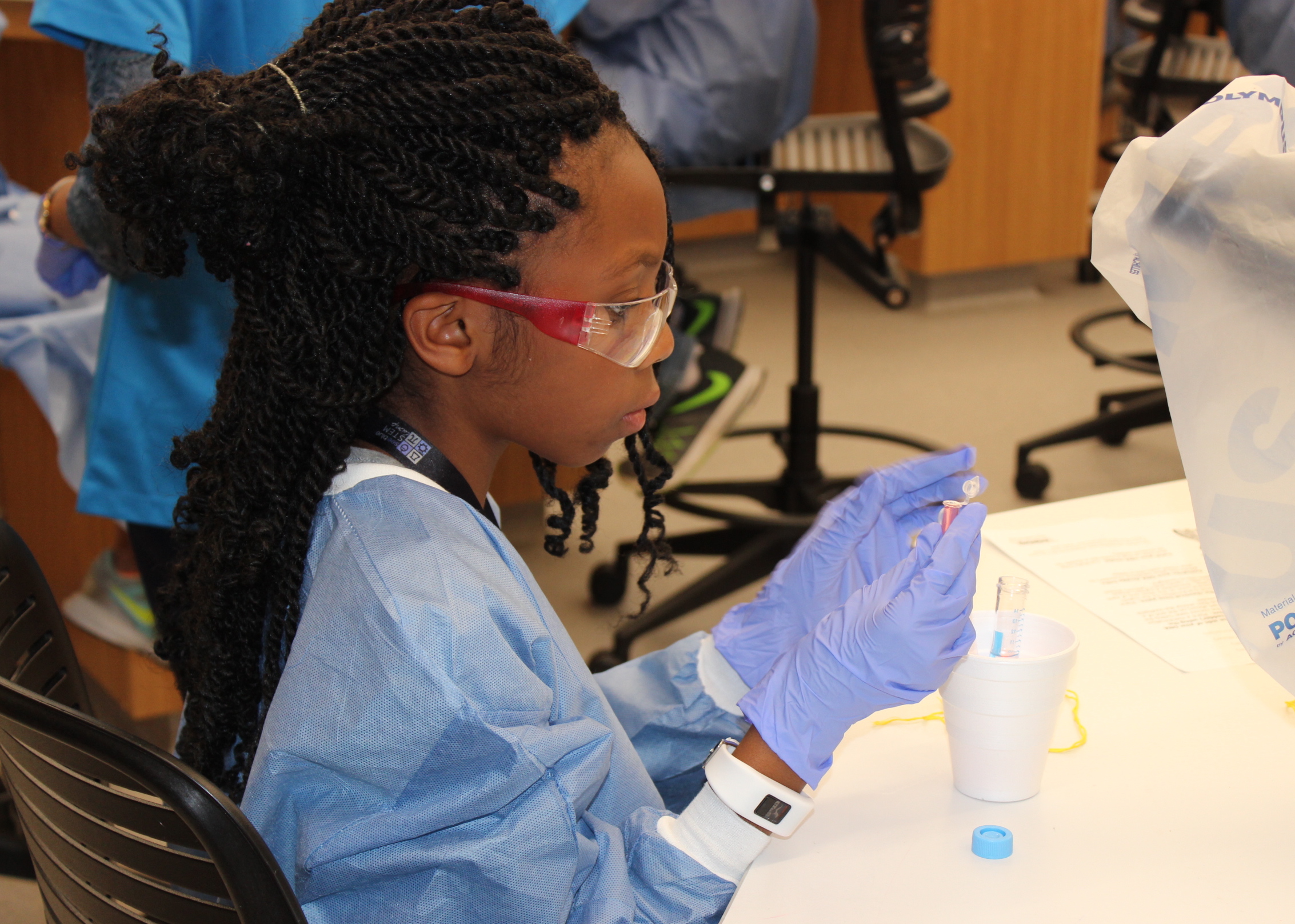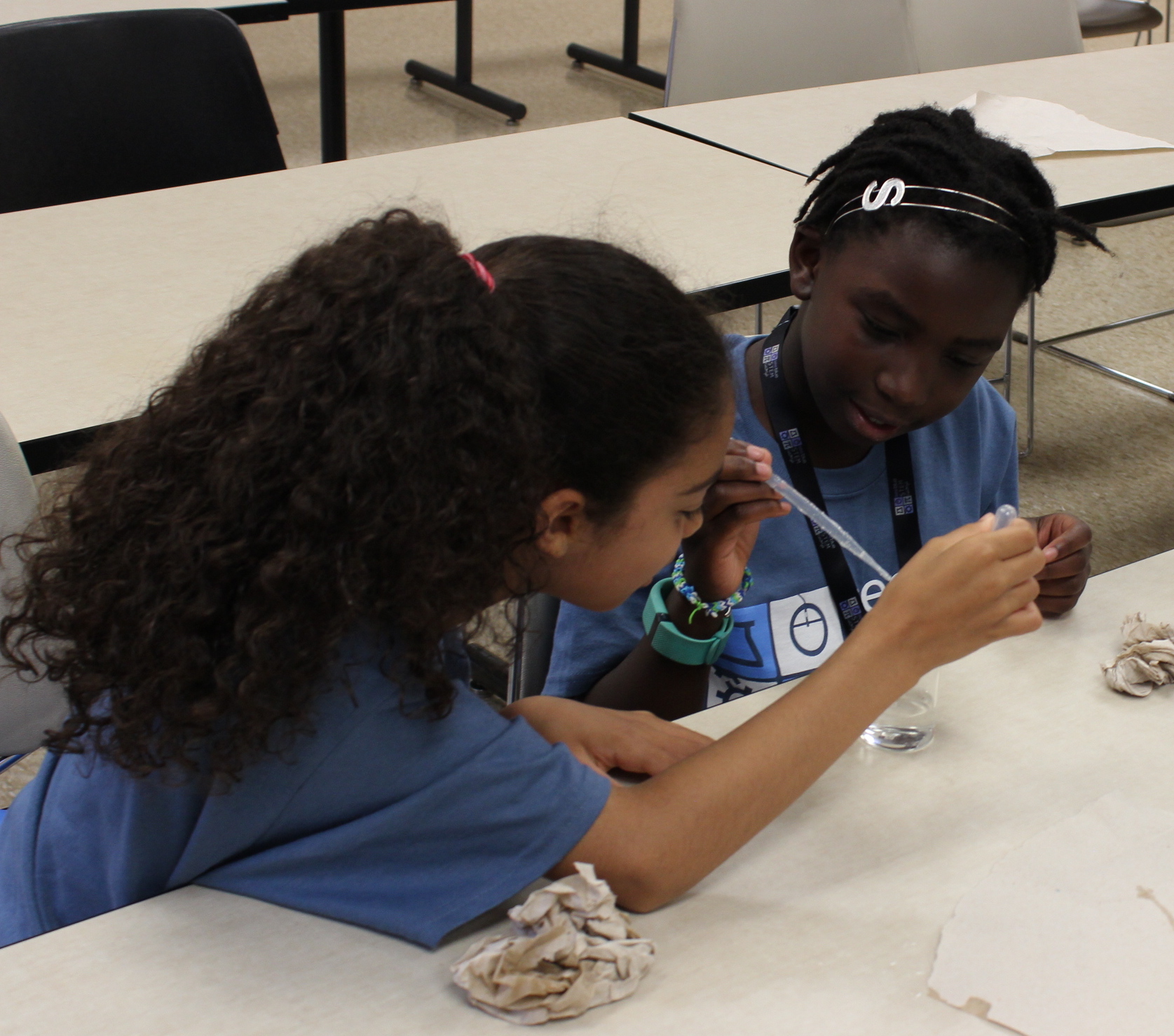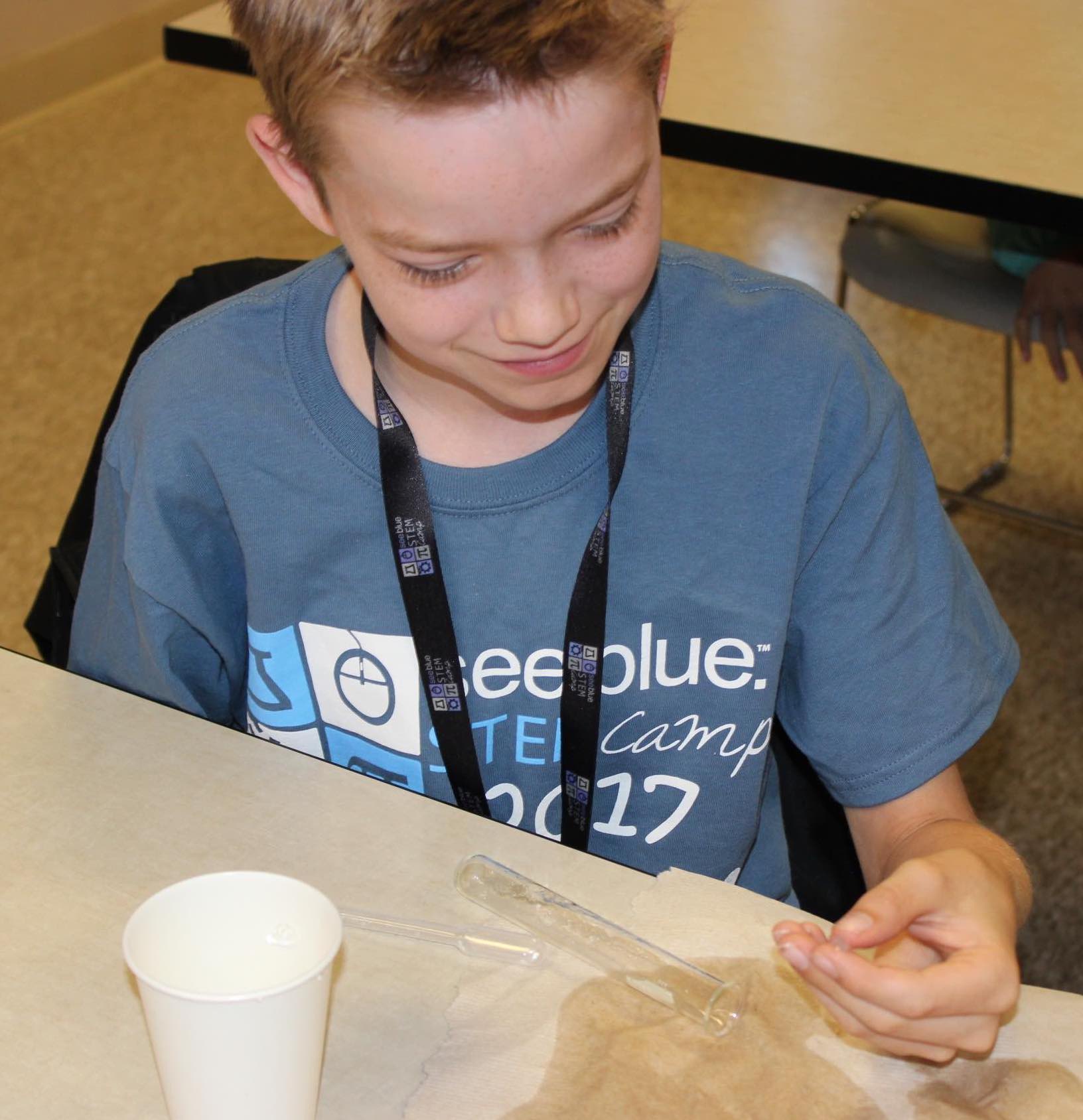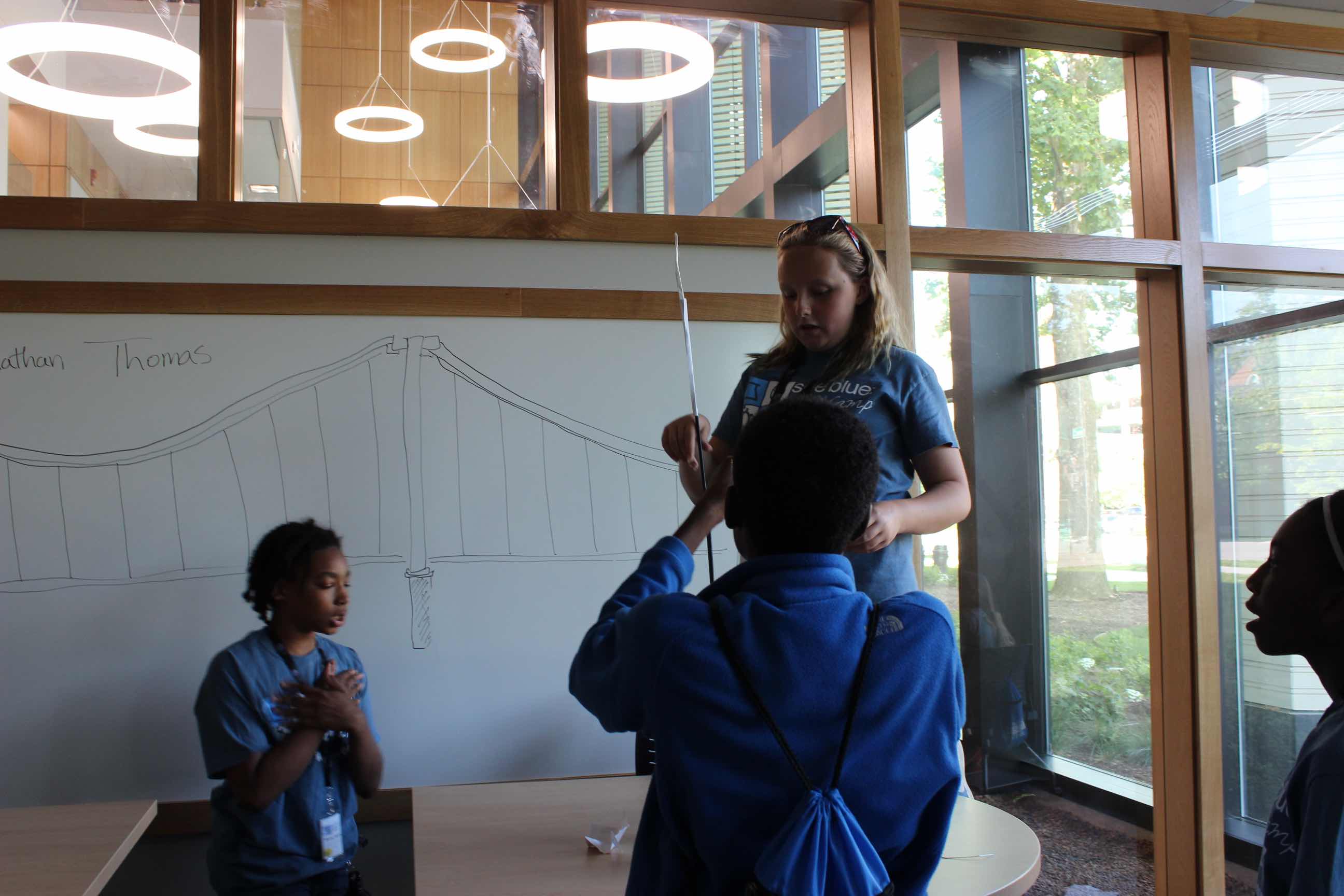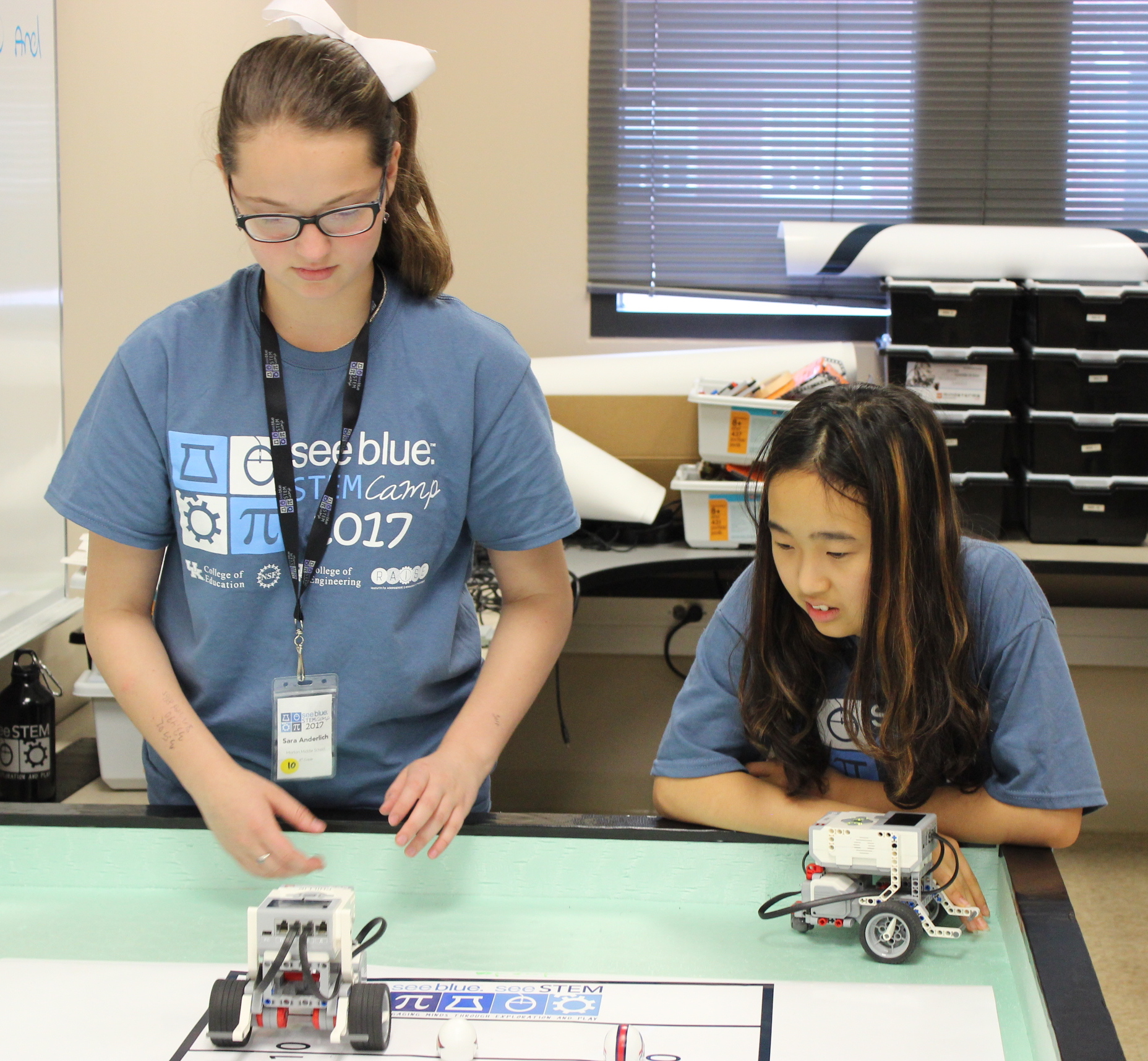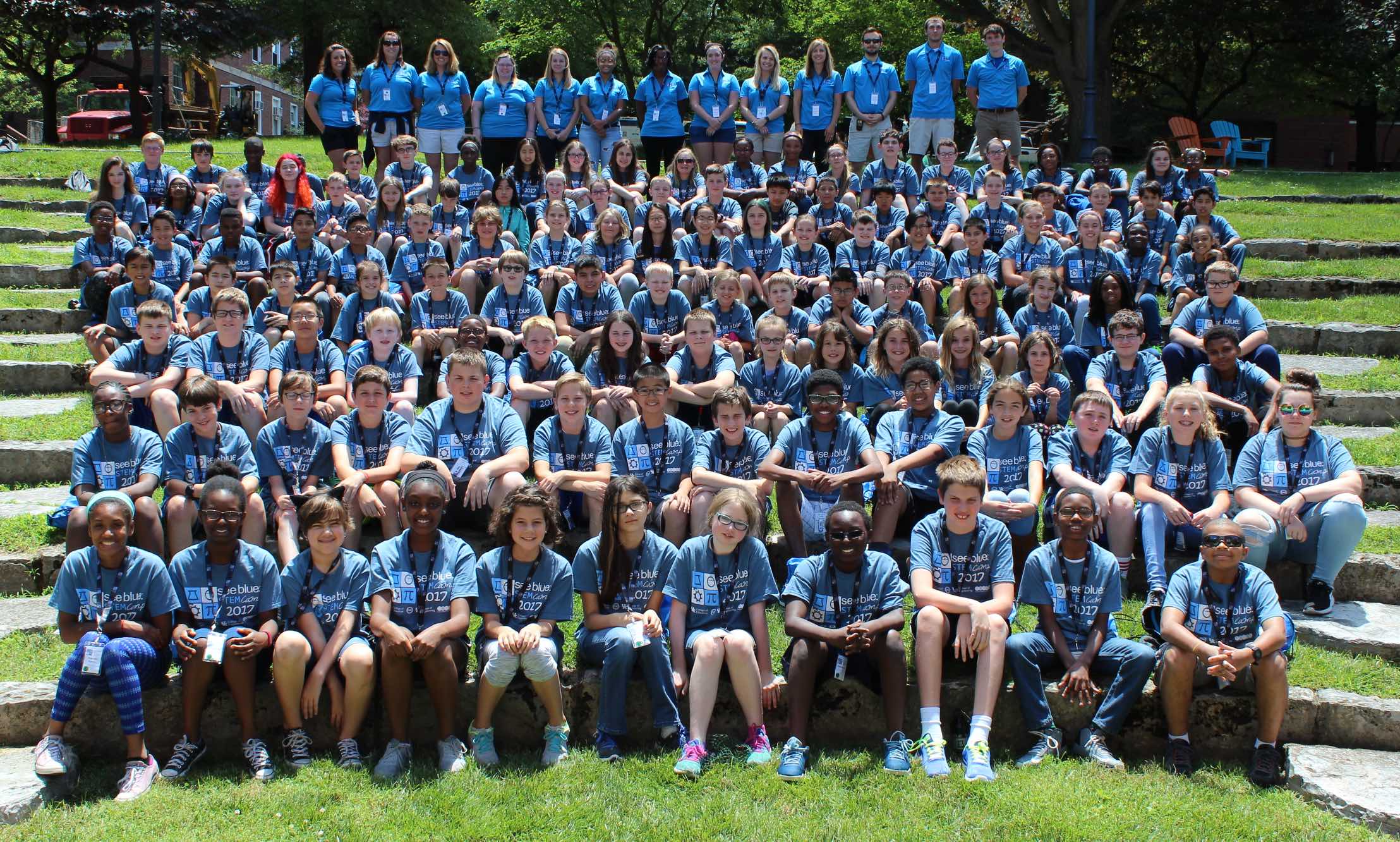It was another great day 1 at the See Blue STEM Camp! It was a little steamy outside, but we are thankful the rain went north of campus and kept us dry as we walked to the different activities. We are very excited to welcome 228 campers this year! One hundred twenty-four of them started today! Registration went very well this morning and we really appreciate everyone’s patience as we got everyone checked in. You all are awesome!
Just a note about the consent and assent forms that we ask for every year. Our camp is subsidized by an NSF grant that requires research and reporting to the agency. The purpose of the research is to develop a camp model that promotes STEM careers to adolescents and can be replicated. We also look at students attitudes towards STEM and the impact of our activities. Without this grant and consent and assent to participate the camp simply would not exist. We never report any names or any individual data…it’s always aggregated together! You can read about some of our work here.
We will post a blog post each night this week with some highlights from the day and some conversation starters. The conversation starters are meant to help you get over the “What did you learn today?” “Nothin’” or <shrugging the shoulders> we often see at the adolescent age. We’ll also post a link to the photos we are taking throughout the week. If at any time you want a photo removed that is of your child, please let us know and we’ll be happy to take it down.
Today the students split their time between Dr. Bruce Walcott and his graduate students today. In Dr. Walcott’s session, students were immersed in the wonderful world of engineering…using their hands to build and explore just as engineers do. The students got to build simple motors and talk about what electrical engineers do. They also tested out their design engineering skills by building a boat out of aluminum foil and seeing how many pennies it held. There was time left for them to explore a different type of robot, the Ozobot. They had a lot of fun exploring the Ozobots and why they worked! The students also got to tour the College of Engineering facilities, including a stop in the anechoic chamber, and ending with an up close and personal look at the solar car and how the college students designed and made it! The students had fantastic questions they asked today.
The green and yellow groups got to spend time in our beautiful new science building – the Don and Cathy Jacobs Science Building. They were in one of the labs and got to explore solar energy and how much electricity can be generated. The students got to collect data and make observations about the different panels in different types of light.
All four groups…
In robotics, students started by engineering their robots. They got to build their robot and get to know it. They then start on some basic challenges of getting to move their robots…on a UK football field this year! They had to move their footballs forwards and backwards.
In their words…
Each day we’ll post some excerpts from the students’ reflections of what they learned each day at the STEM Content session. We don’t correct for spelling or grammar in these 🙂
- “I learned that STEM can be used for a lot of real world problems”
- Would like to learn more about this topic (Dr. Graham) “…because t is a way to produce more energy + that is useful.”
- “I like that we learned about a type of clean energy which we will need more of in the future”
- “Diffrient boyencys can hold diffrent weights on water.”
- “I learned the calculas method and the Engineering Design method”
- “I would (like to learn more about this) becasue for all my life I ahve been interested in aircraft and I want to be a Aeronautical Engineer.”
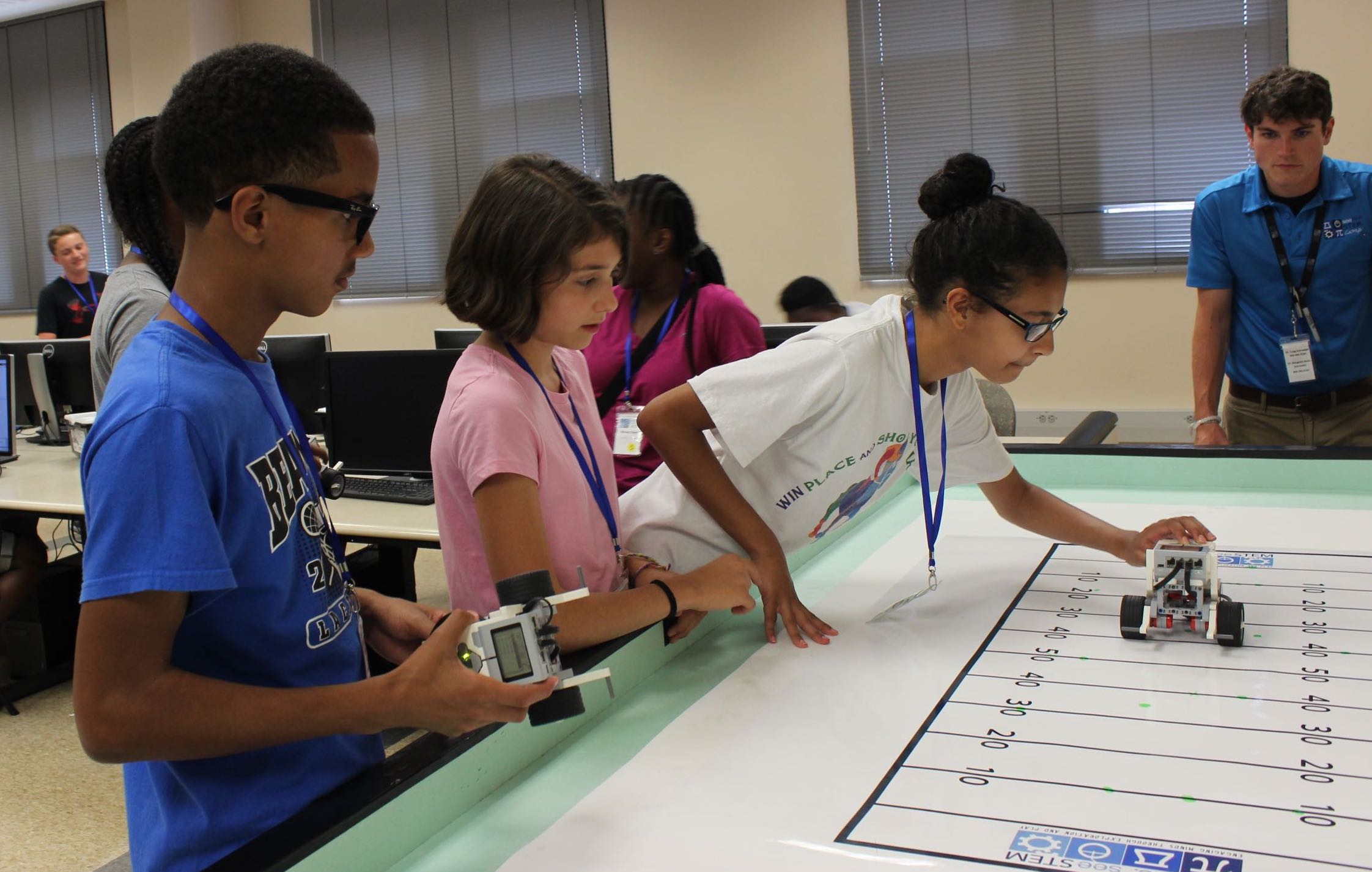 Conversation Starters…
Conversation Starters…
We know your child is getting to the age where it might be like pulling teeth to get them to talk about their day beyond “It was fine.” “It was fun.” “I didn’t do anything.” So, each day we’ll post some suggested conversation starters centered on camp activities or STEM-related themes.
Red/Blue Groups:
- Tell me about how you assembled your robot. Did you follow instructions? Did you just try to figure out what parts went together?
- Is there a particular field of engineering that you think might interest you?
- How many pennies did your boat hold? If you could build it again, what would you do differently?
- How did the Ozobots work?
- What did the inside of the solar car look like?
Yellow/Green Groups:
- Tell me about how you assembled your robot. Did you follow instructions? Did you just try to figure out what parts went together?
- What is solar energy? What can it do for us?
- What did you measure today using your multimeter? What did you find out?
- Was there a difference in the panels you looked at today?
Photo of the Day…
Each day we’ll post a camp highlight. Click the picture and it will take you to the weekly photo album. Please note that we try to capture pictures of all the campers, but we cannot guarantee that we will get every single one. We try our very best to though! Also we are STEM teachers and not full time photographers, so our pictures are not perfect and we leave them unedited, so if you love to edit photos…feel free! 
